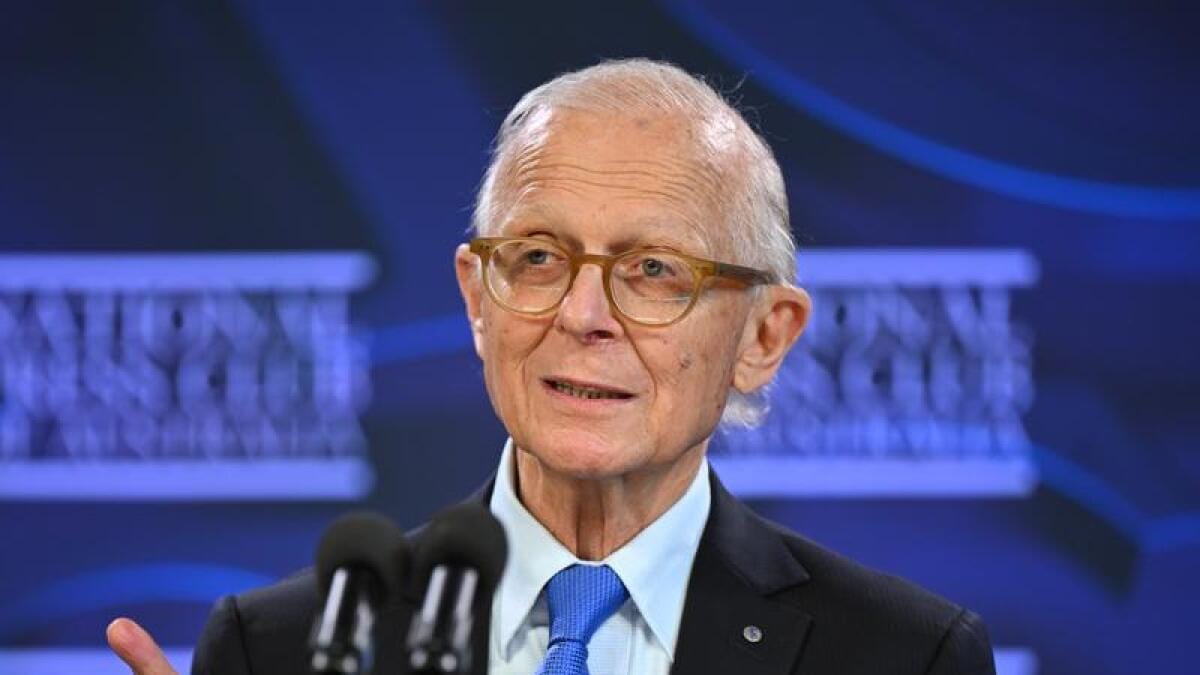
Henry Brodaty at the NPC
Dementia expert Henry Brodaty says the fight against dementia receives "too little" from government. Rather than waiting for a miracle drug, he’s urging government to resource new ways of fighting the disease now.
Professor Brodaty says simply adopting a national dementia risk reduction program could save billions by slashing health care costs and slowing the rapidly growing number of people with the disease.
Speaking in Canberra yesterday, the Professor told the National Press Club a simple dementia prevention trial had already shown the onset of dementia could be delayed by more than a year.
Led by the Centre of Healthy Brain Ageing, where Brodaty is a director, the trial included personalised coaching in physical activity and nutrition. He says even this relatively simple training had been shown to significantly slow progression and delay onset of the disease.
Brodaty says a national scheme similar to the centre's personalised coaching model would shave billions of dollars off the spiralling costs of treatment and care.
The personal effect of dementia was illustrated as Brodaty was introduced to speak, as the compare revealed her father had just been diagnosed with the disease. She said there were “no longer 433,300 Australians currently living with dementia, but 433,301”.
This numbers is expected to more than double by mid-century and become the leading cause of death and a major disability and disease burden.
Brodaty was reluctant, however, to consider any change that might extend the NDIS to people above 65. He stuck, instead, to repeating the simple old advertising jingle used years ago to encourage the use of sunscreen to prevent cancer.
“Australians urgently needs the ‘slip, slop, slap’ of brain health”, Brodaty insisted.
_____________________________________
[continue reading from newsletter]
Aside from the personal heartbreak, the economic cost of dementia is massive.
There are more than 100 types of dementia, all of which are progressive and untreatable. Brodaty added the total cost of disease to the Australian economy is now $18 billion annually, more than half a percent of GDP.
“This figure is projected to rise to $37 billion by mid-century,” Brodaty added.
“Especially for those who have been personally touched by dementia, this disease is their greatest fear.”
In the absence of approved medications to treat Alzheimer’s disease the fundamental issue remains that this won’t help the millions of people who already have the disease.
This is why the Centre for Healthy Brain Ageing (CHeBA) trial is so important. It has been the largest internet-based trial ever conducted with the aim of preventing cognitive decline. This proved that a lifestyle intervention could essentially reduce worldwide dementia prevalence.
With almost half of the risk of developing dementia resulting from environmentally modifiable factors Brodaty said the time to act is now. Where his speech fell short was in specifying exactly how this might occur.
Last year the Department of Health and Aged Care released the National Dementia Action Plan. This outlined 8 specific actions to deal with the dementia crisis confronting Australia.
A National Risk Reduction Program based on CHeBA’s successful trial would likely push back the onset of dementia by more than one year. It would also likely lead to a 15% reduction in total dementia-related costs by mid-century, saving several billion dollars in treatment and care costs.
Brodaty’s speech was more a call to action, rather than a clear plan showing exactly how this can be achieved.
